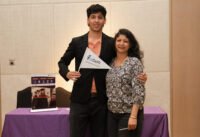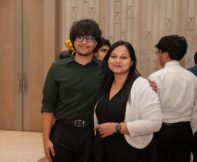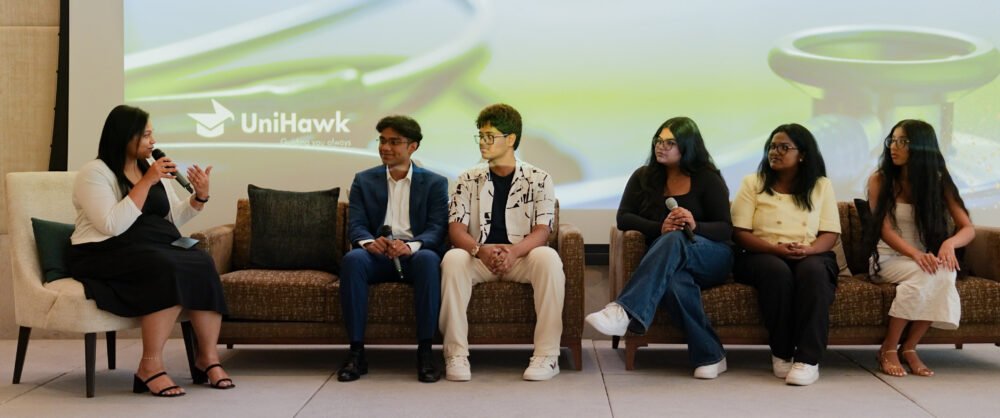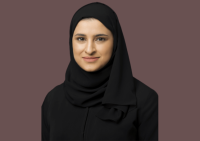University admissions consultancy UniHawk reports a growing preference among the region’s students for European universities, as rising costs and uncertainty make traditional destinations such as the UK, US and Australia less attractive
Dubai, August 26, 2025: As costs rise and concerns over politics and safety grow, students in the GCC are increasingly looking beyond traditional higher education destinations such as the UK, US and Australia, according to university admissions expert UniHawk. The education consultancy notes a shift towards cost-effective options closer to home, with several students this year securing places at top European universities.

Abhinav Chamoli, an 18-year-old graduate from Ambassador School Dubai, will soon be heading to the Netherlands to study Aerospace Engineering at TU Delft, the country’s highest-ranking university. Initially drawn to the prestige of top universities in the US, Chamoli ultimately made the calculated decision to choose Europe for its practical approach to graduate employability for overseas students.
Chamoli explains, “I was seriously considering America of course, as the symbolic homeland of aerospace innovation but the job prospects for international students there are not as strong as in other places. Europe, and particularly the Netherlands, offers better long-term opportunities for working in the aerospace sector.”
For Chamoli, the decision was not purely academic but also a longtime personal passion. He says, “My interest in aerospace began in childhood and evolved into a deeper fascination when I started learning physics. Now, instead of gaming, I watch videos about fighter jets and rocket development. It’s become more than a dream; it’s something I want to live.”
Speaking about the support provided by UniHawk to realise his dream, Chamoli says, “UniHawk didn’t do the work for me but they gave me the tools and mindset I needed to shift from uncertainty to clarity. They helped me focus, guided my essays, and most importantly, helped me understand how to pursue my goals realistically.”

Arjun Menon Tiwari, another UniHawk student, is preparing to start his integrated bachelor’s and master’s degree at the University of Helsinki in Finland. With a strong academic profile, including a 1520 SAT score, Tiwari explored destinations across the UK, Ireland, the Netherlands, and was accepted into leading US universities, including NYU and Boston University, before settling on the Nordic institution.
Tiwari explains, “The University of Helsinki offered the right balance for me; it’s highly ranked and offers flexible study pathways, which means I would be able to explore my passion for life sciences alongside my studies in computer science. The graduate employability prospects are also exciting, with many tech multinationals based in Scandinavia.”
Cultural and practical factors also played a part in Tiwari’s decision. He says, “The straightforward nature of Nordic people really appeals to me, and Helsinki is much closer to home here in the UAE than destinations like the US or Australia. That proximity, combined with the cost efficiencies and quality of education made Finland the natural choice for me.”
While the application process was competitive, Tiwari says that UniHawk’s targeted tutoring in maths and economics, along with SAT preparation, helped him to secure his place. He is now looking forward to meeting students from diverse backgrounds and hopes to build a future at the intersection of computer science and life sciences.
With a focus on personalised support and long-term planning, UniHawk is guiding students through an often-complex preparation and application process, enabling them to make informed, strategic choices about their future. At a time when applicants are looking beyond the traditional options and turning their attention to alternative academic environments, COO of UniHawk, Rashmi Menon, believes it’s more important than ever for students to find the best-fit university.
Menon says, “Studying overseas is no longer about following the crowd, it’s about aligning individual ambitions with practical realities. Students can gain a personally fulfilling experience while still earning a world-class degree. Whether their focus is on graduate employability, cultural diversity, or long-term professional mobility, there are a wide range of options beyond the traditional.”








